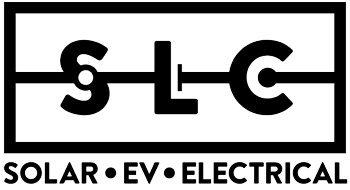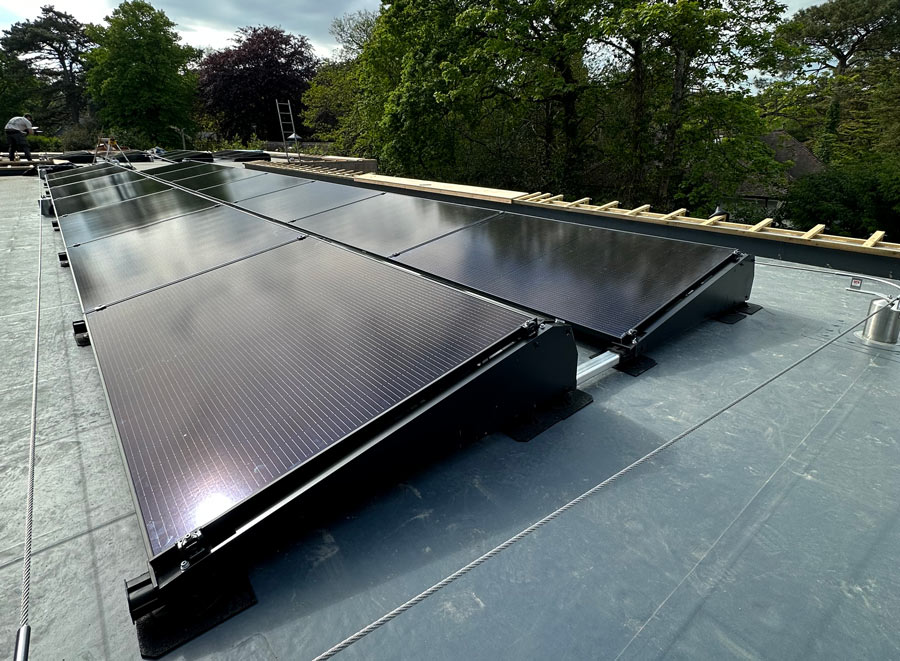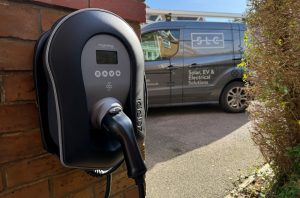Solar energy has become one of the most popular sources of renewable energy in the world, thanks to its numerous environmental and economic benefits. However, despite the growing adoption of solar technology, there are still many myths and misconceptions surrounding its effectiveness. These myths often deter people from considering solar energy as a viable option for their homes or businesses. In this blog post, we will debunk some of the most common myths about solar energy and explain why it’s a highly effective and sustainable solution for reducing energy costs and promoting environmental sustainability.
Myth 1: Solar Panels Don’t Work in Cloudy or Cold Weather
One of the most persistent myths about solar energy is that solar panels only work in sunny, warm climates. People often believe that solar panels need direct sunlight to generate electricity, and that cloudy or cold weather will prevent them from functioning effectively. While it’s true that solar panels generate more power in direct sunlight, they can still work efficiently in cloudy or cooler weather conditions.
The Truth:
Solar panels work by capturing sunlight and converting it into electricity. Even on cloudy days, there is still diffuse sunlight that solar panels can capture. In fact, solar panels can operate at higher efficiencies in cooler temperatures, as extreme heat can actually reduce their performance. Countries with colder climates, such as Germany and Canada, are among the leaders in solar energy production, showing that solar panels are effective even in less-than-ideal weather conditions.
Myth 2: Solar Energy Is Too Expensive to Install
Many people believe that the cost of installing solar panels is prohibitively high, making it an impractical option for most homeowners or businesses. This misconception can be discouraging, especially when considering the initial investment required for solar systems.
The Truth:
While solar panels do require an upfront investment, the cost of solar installations has significantly dropped over the past decade due to advances in technology and economies of scale. Additionally, there are numerous financial incentives available to help offset the initial cost, such as tax credits, rebates, and government incentives. In the UK, programs like the Smart Export Guarantee (SEG) allow homeowners and businesses to earn money by selling excess electricity back to the grid, further enhancing the financial benefits of solar power.
When you factor in the long-term savings on your energy bills, solar energy can provide a positive return on investment, often paying for itself within 5 to 10 years. After that, you’ll enjoy free electricity for the lifespan of the panels, which typically lasts 25-30 years.
Myth 3: Solar Panels Require Too Much Maintenance
Another myth that discourages people from installing solar panels is the belief that they require constant maintenance and are expensive to keep in good working condition. People often worry about cleaning the panels, checking for damage, or having to replace parts regularly.
The Truth:
Solar panels are surprisingly low-maintenance. They have no moving parts, which means there is little that can go wrong. Most solar panel systems require minimal cleaning, as rain will naturally wash away dust and debris. In regions with little rainfall or more dust, cleaning may need to be done every 1-2 years, but this is generally a simple task that can be performed by professionals.
Solar panels are also built to withstand harsh weather conditions and are designed to last for 25-30 years with minimal degradation. The main components of a solar system, such as the inverter, may need to be replaced after 10-15 years, but this is a manageable cost in the context of the long-term savings they provide. Regular inspections by professionals can help ensure that the system continues to operate at peak efficiency.
Myth 4: Solar Panels Don’t Work at Night
Some people believe that solar panels are only effective during the day and don’t produce any energy once the sun goes down. This myth can create concerns about energy reliability, especially for households or businesses that rely on electricity after dark.
The Truth:
While it’s true that solar panels generate electricity during the day when there is sunlight, they don’t stop producing energy entirely at night. This is because solar systems are often paired with battery storage systems that allow you to store excess energy generated during the day for use at night or during cloudy weather. In addition, grid-tied systems allow you to draw power from the grid at night, essentially using the grid as a backup when your solar panels aren’t producing electricity.
By combining solar energy with battery storage or net metering, you can ensure a consistent and reliable power supply even during nighttime hours.
Myth 5: Solar Panels Are Only Effective for Large Homes or Businesses
Many people assume that solar energy systems are only suitable for large homes or businesses with a lot of roof space. They believe that smaller homes or businesses won’t generate enough energy to justify the installation of solar panels.
The Truth:
Solar panels are scalable and can be customized to fit the energy needs of any home or business, regardless of its size. Even small residential homes can benefit from solar energy by installing a smaller system that generates enough power to meet their needs. In fact, many solar panel companies offer solutions designed for small homes, apartments, or urban environments where roof space may be limited.
For businesses, solar systems can be tailored to meet the energy demands of the company, whether it’s a small retail shop or a large industrial facility. With the right system design and energy storage solutions, even smaller properties can achieve significant savings on energy costs and enjoy the benefits of clean, renewable energy.
Myth 6: Solar Energy Isn’t as Efficient as Other Energy Sources
Some people believe that solar energy is less efficient than other traditional energy sources, such as fossil fuels or nuclear power. They may think that solar panels don’t generate enough energy to make a meaningful impact on a household’s or business’s energy consumption.
The Truth:
While it’s true that solar panels are not 100% efficient at converting sunlight into electricity, modern solar panels have an efficiency rating of around 15-22%. This means that a significant portion of sunlight is still converted into usable electricity. In fact, solar energy is one of the most reliable and effective renewable energy sources available.
Additionally, solar panels can be installed in combination with other renewable energy solutions, such as wind power or geothermal energy, to further increase the overall efficiency of your energy system. As solar technology continues to improve, we can expect even higher efficiency rates in the coming years, making solar energy an increasingly viable option for more people.
Myth 7: Solar Panels Are Ugly and Ruin the Aesthetic of Your Home or Business
A common myth about solar panels is that they are unsightly and can detract from the aesthetic appeal of a home or business. Some people believe that solar panels are bulky, unattractive, and will lower the curb appeal of their property.
The Truth:
Solar panels have evolved over the years to become more sleek and stylish. Modern solar panels are designed to blend seamlessly with the roofline, and some are even designed to look like traditional roofing materials. There are also solar roof tiles that integrate directly into the roof, offering a more discreet option for homeowners and businesses that want to maintain their property’s aesthetics.
Solar panels are an investment in your property’s future, and their long-term benefits far outweigh any concerns about their appearance. Plus, with the rising demand for sustainable solutions, many homebuyers and customers view solar panels as a positive feature that adds value to the property.
Conclusion: Solar Energy Is the Future
As we’ve seen, many of the myths surrounding solar energy are based on misunderstandings or outdated information. In reality, solar energy is a highly efficient, cost-effective, and environmentally friendly solution that can benefit both homeowners and businesses. With decreasing installation costs, government incentives, and continuous technological advancements, solar power is becoming an increasingly viable and accessible option for anyone looking to reduce their energy bills and contribute to a sustainable future.
At SLC Solutions, we specialize in providing high-quality solar panel installations that are tailored to meet your specific needs. Whether you’re looking to reduce your energy bills, decrease your environmental impact, or increase the value of your property, we can help you take advantage of the many benefits that solar energy has to offer. Reach out to us today to learn more about how solar power can work for you.




